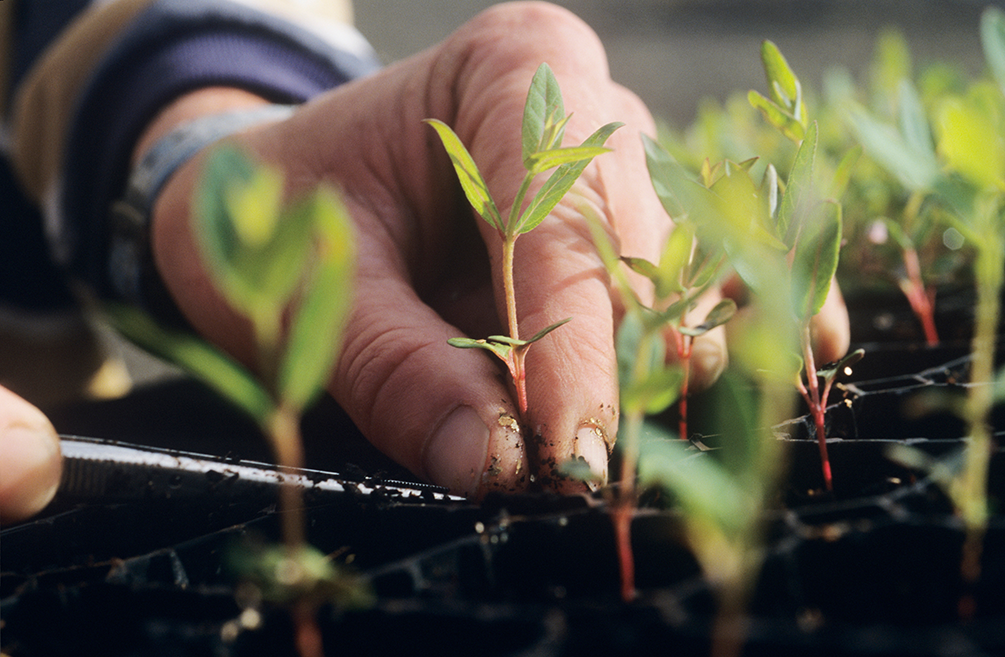If you've been contemplating a career in horticulture, we've got good news. The horticulture industry in Australia has been blooming over the past decade, with production volume and value up $680m on average year-on-year since 2013. And it could reach $20 billion value by 2030.
According to Brett Fifield, the CEO of Hort Innovations, the key to future growth lies in workforce skills and development. This growth is creating a treasure trove of opportunities for job seekers. So, if you've been toying with the idea of diving into the world of horticulture, now might be the perfect time to take the plunge!
Whether you have a passion for plants or growing vegetables, simply enjoy working outdoors, want to contribute to sustainable agriculture, or you’re seeking a seasonal gig, the horticulture industry has a variety to offer. In this blog, we've shed some light on a few common roles, looked into the industry, and provided guidance on how you might enter it.
Horticulture roles to get you started might include:
Nursery Hand: As a nursery hand, you would be responsible for tasks such as planting, watering, potting, and maintaining plants. Additionally, you might assist customers with their purchases and provide plant care advice.
Flower Production or Warehouse Workers: In a role like this you might find yourself order picking, flower stock control or packing and pelletising products.
Landscaping Labourer or Gardener: This role involves getting your hands dirty alongside experienced Landscapers to help create and maintain outdoor spaces, including tasks like planting, mulching, and operating machinery. Check out if we currently have any roles available via our Job Search.
Vegetable or Fruit Picker: This kind of role is often more seasonal and may include picking fruit like cherries, or packing groceries in a warehouse, it could be as diverse as forklift driving or sorting produce.
Training and Qualifications
Some entry-level roles in horticulture require minimal or no formal experience. But certain training and certifications can give you an edge and open new doors of opportunity. A few common qualifications sought by employers:
Machinery Operation: Familiarity with operating machinery like forklifts and other equipment can be a game-changer. Consider getting your forklift license or enrolling in courses that provide training in machinery operation and safety protocols.
Manual handling experience: Knowing how to safely lift, carry, and move objects is crucial. Showcasing knowledge of proper lifting techniques, teamwork, risk assessment, and awareness of ergonomic practices to prevent injuries, will also help endear you to potential employers.
Chemical Accreditation: For roles involving pesticide or herbicide use, obtaining a Chemical Accreditation might be handy. This certification ensures you can handle and apply chemicals safely and responsibly.
Certificate II in Horticulture: This entry-level qualification provides a solid foundation in horticulture principles and practical skills. It covers areas such as plant identification, pest and disease control, soil management, and workplace safety.
Getting Started
Whether you need a quick role or are looking to start a longer career in the horticulture industry, being proactive will help!
Gain hands-on experience: Nothing beats getting out there and getting your hands dirty. Find opportunities for short-term roles, volunteer work, or part-time positions in horticulture-related settings. Practical experience will not only strengthen your resume but also give you valuable exposure to the industry's day-to-day operations.
Showcase your skills: When applying for entry-level horticulture jobs, emphasize your passion for plants, ability to work outdoors, and any relevant skills or qualifications you have obtained. Tailor your resume to highlight your strengths and align them with the job requirements.
Contact us: AT LSA we always have plenty of opportunities available in different locations with different responsibilities, and we’re keen to help you cultivate your next horticulture role.

